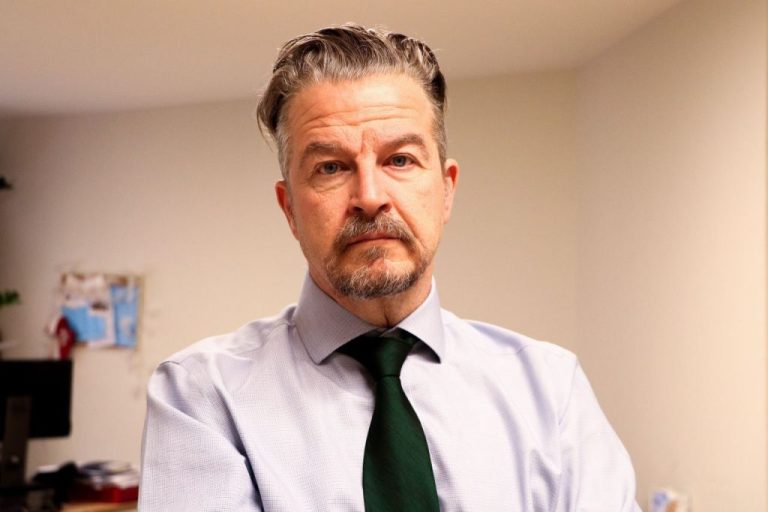As war in Ukraine passes a grim milestone, the global nursing community has made fresh calls for peace and the protection of healthcare workers.
The International Council of Nurses (ICN) said the three-year anniversary of Russia’s invasion of Ukraine was a “stark reminder” of the devastating impact of war on everyone, and of the “profound burden” nurses continuing to work in conflict zones bear.
“With this cruel war continuing, there are no safe places for nurses”
Tetyana Chernyshenko
On 24 February 2022, Russian troops began a full-scale invasion of Ukraine.
Since then, a huge number of civilians and soldiers have been killed; estimates vary wildly due to difficulties with data reporting in the region, but the Kyiv Independent, a Ukrainian news organisation, claimed that the total death toll stood at roughly 150,000 as of 13 February 2025.
Among the dead and injured have been healthcare and aid workers, including nurses. According to a World Health Organisation (WHO) report published in August 2024, as of that month there had been 1,940 attacks on healthcare workers and facilities since the start of the invasion.
Coinciding with the third anniversary of this conflict, the ICN this week updated its policy statement on nursing in conflict zones.
This document asserts that conflict, inherently, is a “violation of the right to health”, and acknowledges the increase in wars in recent years.
It demands that healthcare facilities and workers are protected and condemns strongly any violence against them.
Further, the document encourages national nurse associations to educate nurses on their rights during conflicts under international law, to help create conflict preparation and recovery plans and to lobby governments to find diplomatic solutions to avert armed conflict.
According to the Geneva Academy of International Humanitarian Law and Human Rights, there are more than 110 ongoing armed conflicts across the world. Nurses are frequently caught up in these incursions.
Tetyana Chernyshenko, president of the Nursing Association of Ukraine, said in a statement shortly after the third anniversary of the invasion: “With this cruel war continuing, there are no safe places for nurses.

Tetyana Chernyshenko
“In the worst areas, such as Donetsk region, Lugansk region, Kherson region and Zaporizhia region, there are no medical centres or pharmacies, but still our nurses are continuing to function in those areas.
“Many people have been killed, and many have rehabilitation needs after traumatic injuries, including amputations.”
Ms Chernyshenko spoke about the physical and mental impact of the conflict on Ukrainian nurses, adding: “We especially call on nurses around the world via ICN to help us improve the psychosocial state of our nurses, who have been deeply affected by the war and the trauma they see every day.
“We remain dedicated to providing our nurses with proper education they need to care for the people of Ukraine.”
The ICN continues to run its Nurses For Peace campaign, which helps raise funds for nurses working in emergency situations, including war zones, across the world.
It was initially set up following the outbreak of war in Ukraine in 2022, but has since expanded to help aid nursing staff in other conflicts, such as in Sudan and Gaza.
ICN chief executive Howard Catton added: “Against a backdrop of increasing conflicts ICN has updated its policy statement, ‘Health care in conflict’, which reinforces and reiterates the call for the protection of nurses and other health care workers, demanding that governments and all parties in armed conflicts uphold international humanitarian laws.
“Attacks on health facilities, personnel and patients violate fundamental human rights and endanger the very foundation of health care systems.”

